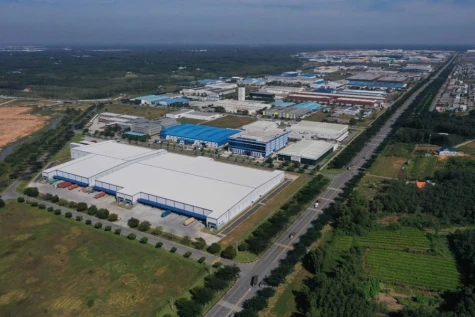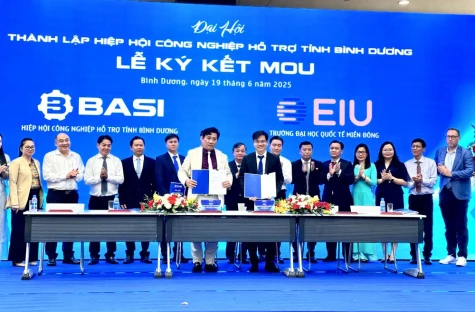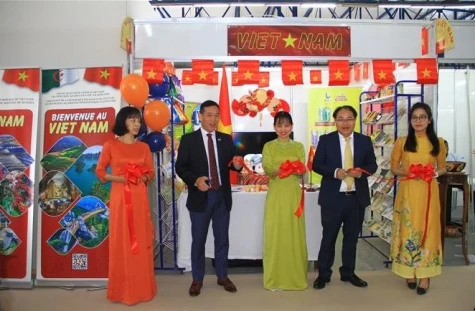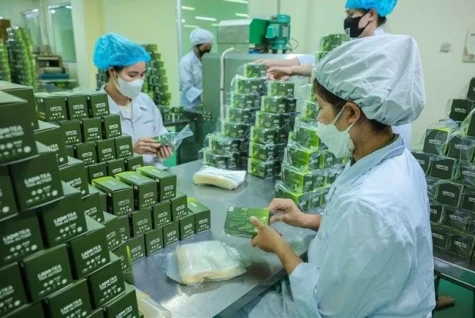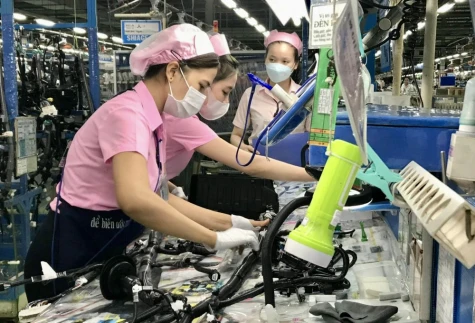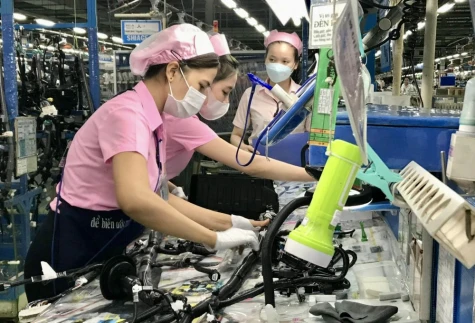Enhancing trade promotion activities along with developing e-commerce platforms enables businesses and production establishments to improve the efficiency of goods consumption. This, in turn, helps to reorganize production, enhance management, and maintain quality control throughout the entire chain from production to processing and packaging.

Creating sustainable market
In recent times, Provincial Department of Industry and Trade has implemented various solutions to support enterprises and cooperatives in promoting the consumption of agricultural products and local specialties within the supermarket system. They are enhancing the use of information technology in the production and consumption of OCOP products (the "One Commune, One Product" program) and typical rural industrial products. This includes implementing traceability systems and connecting with e-commerce trading platforms. The Department also encourages and supports enterprises and production establishments to display their products on e-commerce platforms, facilitating trade connections with different provinces. Recently, they have supported participation in conferences aimed at promoting regional cooperation in e-commerce development, application programs, and digital payment solutions.
To develop agricultural product supply chains, various sectors and localities within the province are focusing on cultivating concentrated, large-scale commodity areas. They encourage and support enterprises, cooperatives, and farming households to produce according to VietGAP and Global GAP standards. Efforts are also being made to build geographical indications, register collective trademarks, and establish standardized planting and farming areas to ensure the origin and quality of input materials for processing. Localities in the province are actively attracting investment, maintaining agricultural product supply chains, expanding markets, building brands, and enhancing product value in both domestic and export markets.
Mr. Nguyen Hong Quyet, Director of Kim Long Melon Cooperative, stated that the cooperative currently cultivates melons on 30 hectares. Their melons are now available in most major supermarkets across the country and are also exported to Japan and Singapore. By producing according to market orders, the cooperative can focus on quality, ensuring that they meet customer expectations.
Although cooperatives in the agricultural sector are at different levels of development, many have successfully accessed credit to invest in equipment and machinery, build facilities, expand production and business, develop brands, and apply higher standard processes. As a result, production scales are increasing, business lines are diversifying, and the unique products offered are being developed alongside clean production. Mr. Le Minh Sang, Director of Tan My Fruit Tree Cooperative, mentioned that their cultivation area exceeds 62 hectares, producing grapefruit, oranges, guavas, apples, tangerines, and more. The cooperative's total annual output is approximately 1,000 tons, generating an average profit of 20 billion VND per year. Their mission goes beyond connecting members; it also addresses the capital needs of small-scale farmers, which is essential for the cooperative's efficiency in production and business.
“Tan My Cooperative has developed and registered labels while using electronic stamps (QR codes) for traceability. Through these efforts, the cooperative's products are now available in numerous supermarkets nationwide. Additionally, their pomelos are exported to China, Singapore, and Europe, along with by-products such as long pepper salt,” Mr. Le Minh Sang added.
Mastering market regulations
According to Mr. Le Minh Sang, local products must meet technical standards, traceability requirements, clear packaging labels, and ensure a stable and continuous supply to enter large supermarkets. Producers express a strong desire for support in standardization, OCOP certification, access to market information, and training in negotiation skills and contract signing.
A representative from the Thanh Kien Guava Agricultural Cooperative in Phu Giao district stated that they primarily cultivate red-fleshed guava and Taiwanese guava. Since their product was recognized as a three-star OCOP, the value of the cooperative's offerings has increased, leading to a stable consumer market. The cooperative is committed to enhancing product quality along with brand development, going beyond just logos and slogans. In 2025, they plan to apply for re-recognition in the OCOP Program as a stepping stone for further market development.
To tap into larger markets, production units are closely monitoring export regulations. Durian growers and traders have noted that the General Department of Customs of China currently imposes strict food safety controls and plant quarantine requirements for durians exported from Vietnam. Namely, exported durians must be sourced from approved growing areas and packaging facilities, be free of harmful organisms, and meet food safety criteria regarding pesticide residues, heavy metals, O-yellow, microorganisms, and other prohibited substances. In the future, durian growers will need to enhance pest control, refrain from using chemicals during cultivation, and utilize effective biological products.
Ms. Phan Thi Khanh Duyen, Deputy Director of Provincial Department of Industry and Trade, stated that proactive measures to promote trade and consumption of agricultural products and specialties will significantly change consumer attitudes, encouraging them to prioritize goods produced by domestic enterprises. This shift will create sustainable demand for local agricultural products and specialties. |
Reported by T.My, A.Tuan - Translated by Ngoc Huynh








